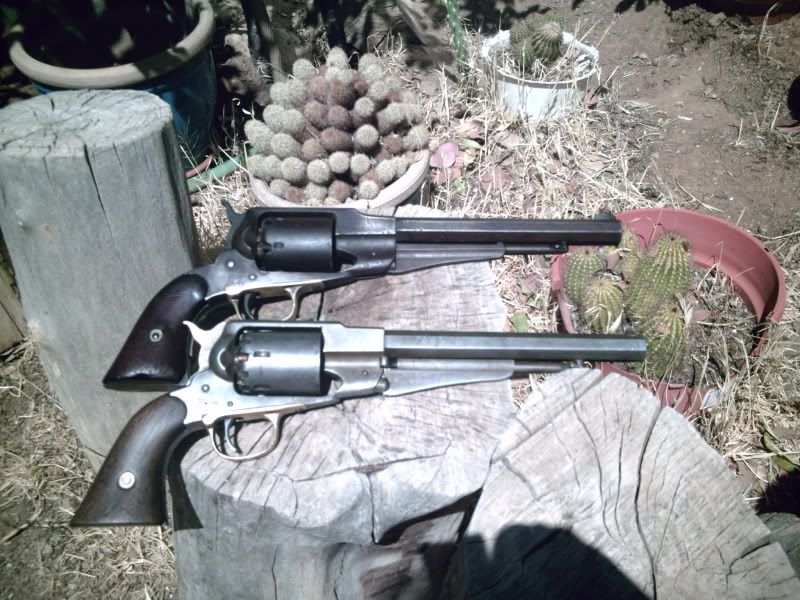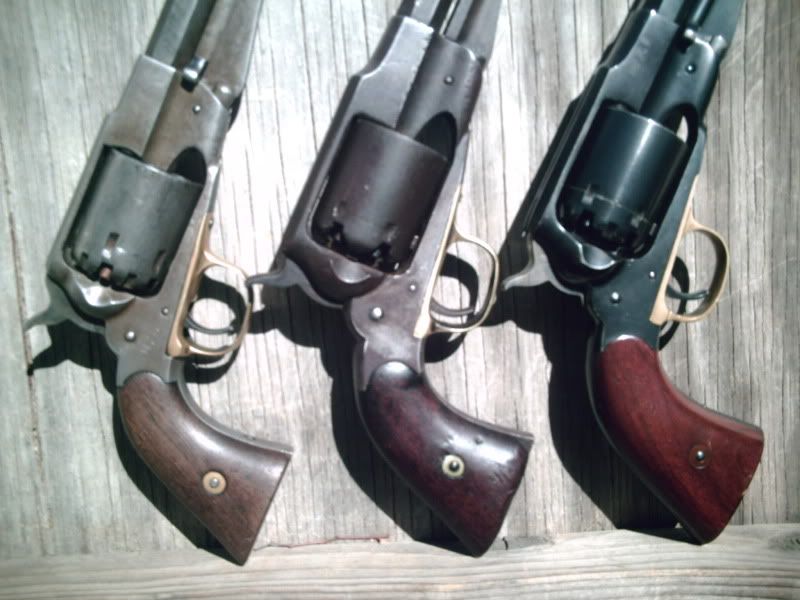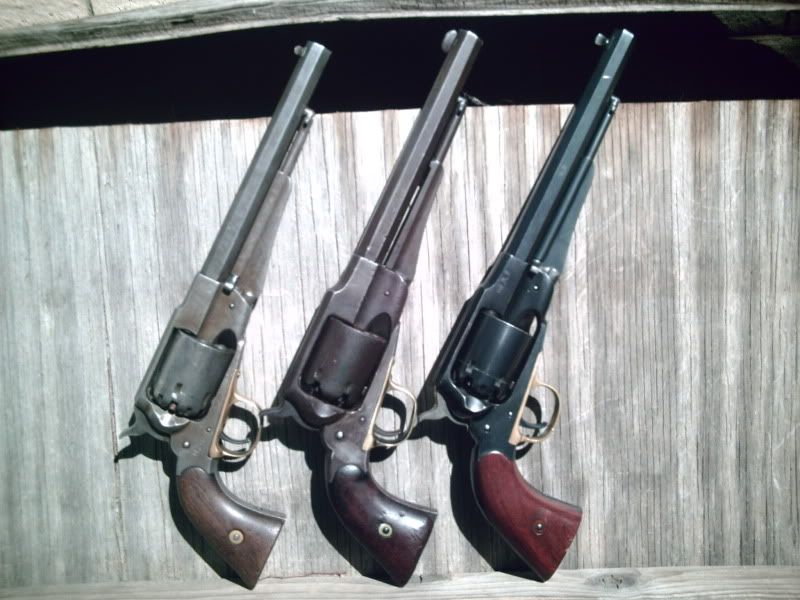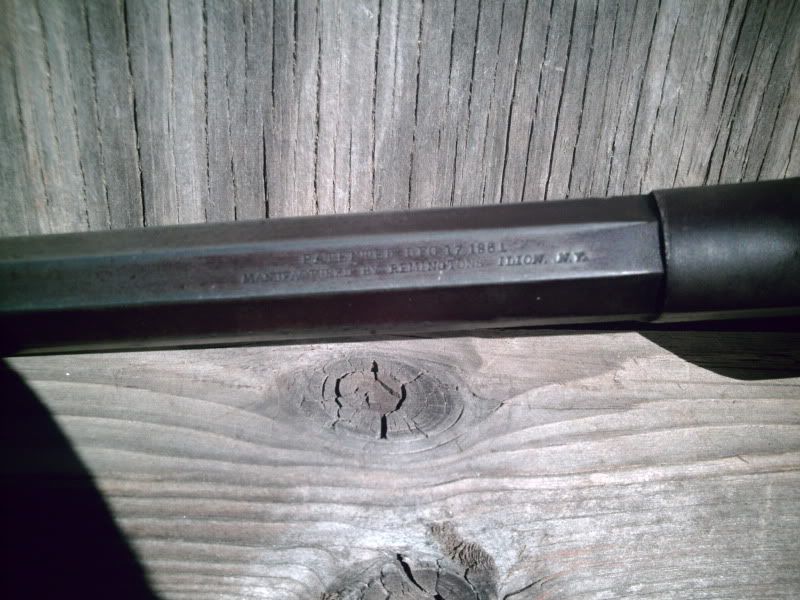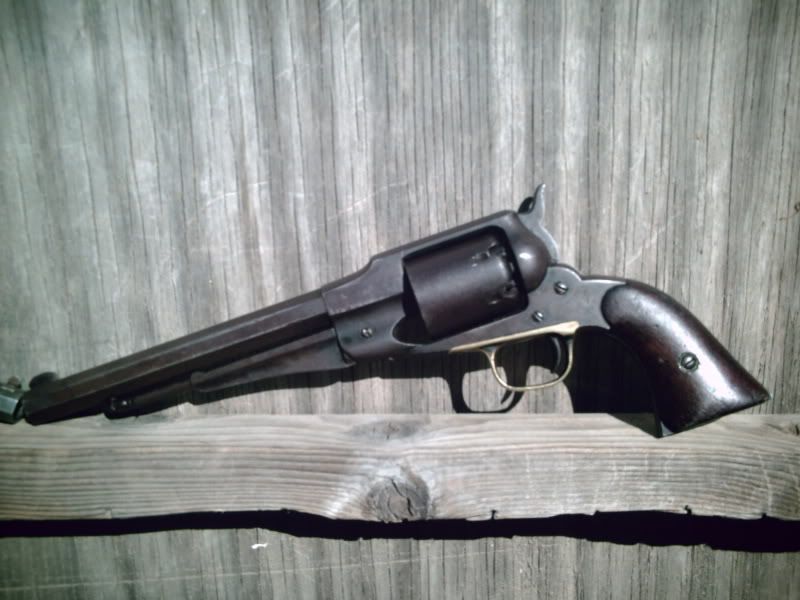Billy,
I've been in the black powder gun & accouterment business for several years since my body crapped out and as you found out, it all comes down to price. You simply cannot compete on price with the mail-order chain stores because even if you're buying a dozen guns at a time, you're not getting the same wholesale price that chain store like Cabela's gets when they buy 5,000+ guns at a time direct from the mfg. Even on used guns, you can't compete with the junk dealers at the gun shows or the on-line auction forums; they're the ones giving some little old lady at a yard sale $30 on a $300 gun and have no overhead to contend with so anything they make over that initial $30 is pure profit because they're not shelling out multiple thousands of dollars a year for insurance, utilities and all the other costs that go along with owning and operating a business.
Here's a great quote from Kirpi97:
We do not have even one local seller who will to take the time or money to meet all the federal and state requirements to sell real black powder. In fact, we have only one shop in all of Oregon, that I am aware of, that sell black powder. So we have to get use to the substitutes. But the store owners frustration with the government wears off on the customer. If they don't carry the supplies, and supplies are hard to come by, it is hard to advance beyond the curious shopper.
Above is the perfect example of why the little guys cannot make it - those who have no idea what's involved with this business simply don't understand the "why's" of many things. Kirpr97, this is by no means an insult to you, just a little enlightenment to help you and other's understand the "why's".
First, the amount of actual dollar costs involved with being a black powder retailer is quite high just to obtain "permission" from the governments (yes, plural because it starts with the locals and if you get past them, then you can begin working on the state & fed's) The time-loss costs are extreme because every step along the way is a battle that eats up hours upon days upon weeks upon months ... unless a person is independently wealthy and doesn't need to be in business in the first place, most little shops simply cannot afford to loose the amount of time required to fight each step of the battle let alone risk loosing the actual monetary costs as well. If you do get all the ducks in a row, then you have the monetary costs of insurance which are already at insane levels for any business let alone one that is now going to stock "explosives". Not only is there a significant cost for the general liability but also in your own fire coverage as well as other coverage's that may be required by the state and local governments. - - Now, the question is: "Can that local dealer sell at least 5,000 pounds of black powder every year just cover the cost of having it in the store?" Question 2: "Are you willing to pay 20-40% or more in higher costs for everything else in that store in order to have the convenience of being able to buy black powder there?"
Like I said, I'm not trying to be nasty here, quite the opposite, this is just some FYI for those of you who have never owned and operated a business. Gun shows are great, good time to be had by all but they come at a very high cost to the dealers. First, you have the cost of a table that ranges on average anywhere from $70-$125 depending on the location of the show and the show promoter. In addition to the table, most promoters require the commercial vendors to carry a separate liability insurance policy for their tables at the show; depending on the level of coverage this can cost on average from $1,000 to $4,000 per year. Even if you only set-up one or two tables at a show, you have 2-3 days of preparation and set-up time before the show and another 2-3 days of clean-up time after the show. Then you have to add the travel, lodging, parking, food and other costs associated with doing the gun show. If you've got a storefront, you either have additional costs of hiring people to tend the store while you're at the show or loose the store business and possibly customers if you close it while you're at the gunshow. Back at the storefront, you have to consider that there is at least 8-10 hours per week devoted solely to required paperwork as well as cost & inventory management - that's 416-520 hours per year of cost & loss to the owner. When you commit to running a business, it's a 24/7/365 commitment, the work day doesn't start & stop with the store hours. When the doors close, the work continues not just in the store but also at home where you sit in front of the computer for hours on end trying to find better pricing and new products. You risk a lot of money on new products that may or may not be what they claim to be an if they're not, the cost and loss is on the business owner to return it and attempt to get a refund.
Now, there is a HUGE difference when you buy from a small dealer as opposed to a large retailer / chain store. Every item that comes into a small shop is inspected by the owner, if it comes in broken or damaged, the shop lays out the cost and time to get it replaced. When you mail-order from a big place, you get whatever is in the box someone happens to pull off the shelf and if there's something wrong, it's costing you time and money to send it back and wait for a refund or replacement that may or may not even happen. Are you then willing to invest $250+ to hire a lawyer to fight for a refund on a $270 gun?
You see, the majority of little mom & pop stores, even if they're selling mail-order, will do whatever they can to keep the customer's happy because every customer is important. You go to the big stores and they don't care if you're PO'ed or not because for every unhappy customer like you they loose, they sucker in a thousand more because their price is a few dollars lower. The mom & pop stores don't think that way, we are the ones who will take a $50 loss on something just to keep the customer happy so the customer keeps coming back; big retailer's could care less if you come back or not. It's us little guys who rely upon word-of-mouth advertising from satisfied customers and not suckering in replacement customers with fancy radio or TV ads.


